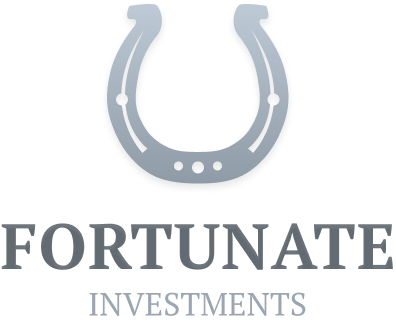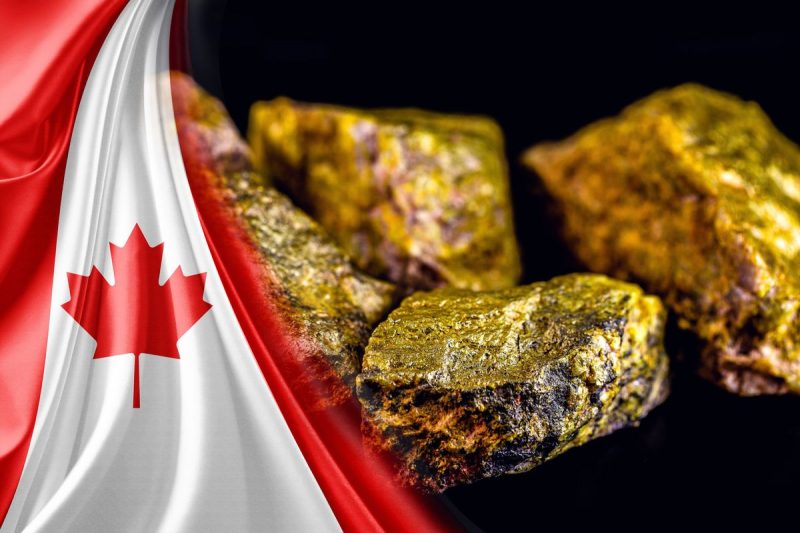The uranium spot price hit a two decade high of US$106 per pound in January.
The energy commodity endured low prices for decades, but its recent rapid rise has come amid ongoing supply concerns and a strong outlook for demand. On the supply side, major producers are facing headwinds in ramping up output, while geopolitical concerns are creating supply chain uncertainty. In terms of demand, governments around the world continue to build out their nuclear power capacity in an effort to move away from fossil fuels.
Below are the top uranium stocks on the TSX, TSXV and CSE by share price performance so far this year. All data was obtained on February 21, 2024, using TradingView’s stock screener, and all companies had market caps above C$10 million at the time. Read on to learn what factors have been moving their share prices.
1. Myriad Uranium (CSE:M)
Year-to-date gain: 89.19 percent; market cap: C$12.63 million; current share price: C$0.35
Uranium exploration company Myriad Uranium has an earnable 75 percent interest in the Copper Mountain uranium project in Wyoming, one of the most prolific uranium jurisdictions in the the US. The project area hosts several known uranium deposits and historic uranium mines, including the Arrowhead mine.
The company also holds an 80 percent stake in uranium exploration licenses that cover more than 1,800 square kilometers in Niger’s Tim Mersoï Basin. The area is home to several world-class uranium deposits that lie on the same fault structures, including Orano’s Imouraren mine, Global Atomic’s (TSX:GLO,OTCQX:GLATF) Dasa project and GoviEx Uranium’s (TSX:GXU,OTCQX:GVXXF) Madaouela asset.
Myriad hasn’t put out any market-moving news so far in 2024, but its share price has seen strong momentum. Uranium’s price upside is likely helping, along with recent legislation would require the US to buy domestically sourced uranium for its nuclear power generation. The bill still requires Senate approval, but is expected to receive it.
2. District Metals (TSXV:DMX)
Year-to-date gain: 59.38 percent; market cap: C$29.42 million; current share price: C$0.255
District Metals has built a portfolio of polymetallic exploration and development projects, with its main focus being the wholly owned Viken uranium-vanadium project and the polymetallic Tomtebo project in Sweden.
The Viken property is among the largest deposits by total historic mineral resources of uranium and vanadium in the world. The deposit also hosts significant molybdenum, nickel, copper and zinc mineralization. In addition to these, the company has the Tåsjö and Ardnasvarre polymetallic projects, which are both prospective for uranium.
Although there is currently a moratorium on uranium mining in Sweden, there are signals that a shift could be on the horizon. Support for the country’s uranium industry came in June, 2023 in the form of a Swedish news article with quotes from multiple politicians. Swedish Minister for the Environment Romina Pourmokhtari stated, “I believe that we need uranium mines in Sweden,” according to the article, and Swedish Minister for Energy and Business Ebba Busch said, “Sweden also needs more uranium to achieve greater fossil-free electricity production.”
District Metals completed a C$4.5 million bought-deal private placement in early February, after which the company’s share price hit its year-to-date high at C$0.345.
3. Aero Energy (TSXV:AERO)
Year-to-date gain: 52 percent; market cap: C$12.11 million; current share price: C$0.19
Formerly known as Angold Resources, mineral exploration and development company Aero Energy holds a district-scale, 250,000 acre land package in the historic Uranium City district within Saskatchewan’s Athabasca Basin. The company has identified more than 50 shallow drill-ready exploration targets on the property.
Found along the frontier northern rim of the Athabasca Basin, Aero’s property includes the formerly producing Gunnar mine, whose historical output comes to 18 million pounds of U3O8.
Aero’s flip from gold to uranium has helped to boost its share price, which hit a 2023 low of C$0.04 on October 13.
The company plans to kick off a 10,000 meter exploration program in Q2 2024. At the Murmac and Sundog projects on the property, Aero is planning an initial 4,000 meter drill program across 20 holes with an average depth of 200 meters. At the Strike project, Aero has planned an initial 1,000 meter drill campaign across five holes.
4. Premier American Uranium (TSXV:PUR)
Year-to-date gain: 45.16 percent; market cap: C$33.1 million; current share price: C$2.25
Premier American Uranium is building a project portfolio with assets in two of the most prolific uranium-producing jurisdictions in the US: the Great Divide Basin of Wyoming and the Uravan Mineral Belt of Colorado. The company has three projects in the Uravan Mineral Belt with historic uranium and vanadium production.
Shares of the company reached their highest price on February 12, trading at C$3.29. Premier American first began trading on the TSX Venture Exchange on December 1, 2023. Looking forward to 2024, the company is permitted and licensed for a drill campaign at its 25,500 acre Cyclone project in Wyoming.
5. Forsys Metals (TSX:FSY)
Year-to-date gain: 34.25 percent; market cap: C$191.27 million; current share price: C$0.98
Uranium company Forsys Metals’ primary focus is advancing its Norasa uranium project in Namibia, which is the world’s third largest uranium-producing country and is home to the world’s fifth largest-known uranium resources. The project hosts the Valencia and Namibplaas uranium deposits.
Shares of the company reached their yearly peak on January 24, trading at C$1.15 each.
Forsys is currently re-evaluating Norasa’s 2015 feasibility study and geological data. In addition, the results of a 4,100 meter drill program will help inform improved process and pit designs. The company is also looking at new technologies with the potential to optimize recovery rates, tailings and project economics. Forsys expects to complete this work by mid-2024.
FAQs for investing in uranium
What is uranium used for?
Uranium is primarily used for the production of nuclear energy, a form of clean energy created in nuclear power plants. In fact, 99 percent of uranium is used for this purpose. As of 2022, there were 439 active nuclear reactors, as per the International Atomic Energy Agency. Last year, 8 percent of US power came from nuclear energy.
The commodity is also used in the defense industry as a component of nuclear weaponry, among other uses. However, there are safeguards in effect to keep this to a minimum. To create weapons-grade uranium, the material has to be enriched significantly — above 90 percent — to the point that to achieve just 5.6 kilograms of weapons-grade uranium, it would require 1 metric ton of uranium pre-enrichment.
Because of this necessity, uranium enrichment facilities are closely monitored under international agreements. Uranium used for nuclear power production only needs to be enriched to 5 percent; nuclear enrichment facilities need special licenses to enrich above that point for uses such as research at 20 percent enrichment.
The metal is also used in the medical field for applications such as transmission electron microscopy. Before uranium was discovered to be radioactive, it was used to impart a yellow color to ceramic glazes and glass.
Where is uranium found?
The country with the greatest uranium reserves by far is Australia — the island nation holds 28 percent of the world’s uranium reserves. Rounding out the top three are Kazakhstan with 15 percent and Canada with 9 percent.
Although Australia has the highest reserves, it holds uranium as a low priority and is only fourth overall for production. All its uranium output is exported, with none used for domestic nuclear energy production.
Kazakhstan is the world’s largest producer of the metal, with production of 21,227 metric tons in 2022. The country’s national uranium company, Kazatomprom, is the world’s largest producer.
Canada’s uranium reserves are found primarily in its Athabasca Basin, and the region is a top producer of the metal as well, although some of the major mines have been under care and maintenance in recent years.
Why should I buy uranium stocks?
Investors should always do their own due diligence when looking at any commodity so that they can decide whether it fits into their investment plans. With that being said, many experts are convinced that uranium has entered into a significant bull market, meaning that uranium stocks could be a good buy.
A slew of factors have led to this bull market. While the uranium industry spent the last decade or so in a downturn following the 2011 Fukushima nuclear disaster, discourse has been building around the metal’s use as a source of clean energy, which is important for countries looking to reach climate goals. Nations are now prioritizing a mix of clean energies such as solar and wind energy alongside nuclear. Significantly, in August 2022, Japan announced it is looking into restarting its idled nuclear power plants and commissioning new ones. Experts consider this an important catalyst for uranium.
Uranium prices are very important to uranium miners, as in recent years levels have not been high enough for production to be economic. However, in 2024, prices spiked from the US$58 in August 2023 to a high of US$106 per pound U3O8 in February 2024. At this price level, uranium stocks remain highly undervalued.
Securities Disclosure: I, Melissa Pistilli, hold no direct investment interest in any company mentioned in this article.
















